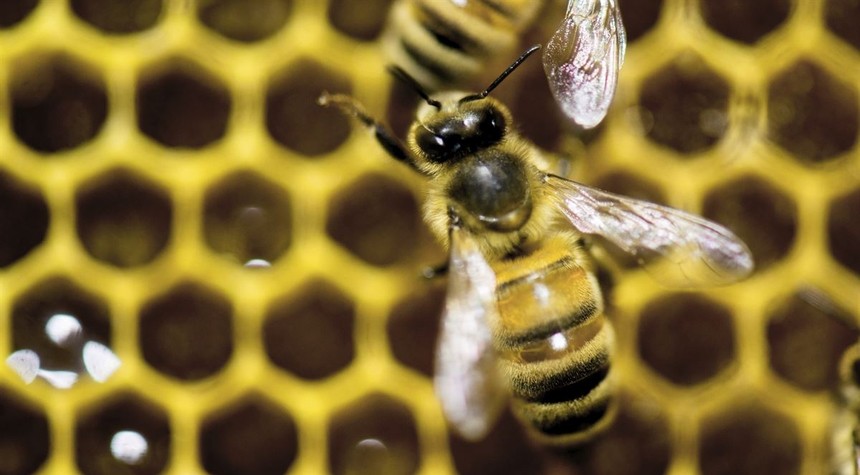(AP Photo/Andy Duback, File)
JAZZ SHAW | HotAir
Before you ask, no. This wasn’t stolen from the Babylon Bee or the Onion. But since we’re talking about California, it can be hard to tell sometimes. Fortunately, this isn’t some new progressive push to provide social justice for bees or even fish. And the underlying issue that was taken up by a California State Appellate Court is a serious one. But the results were simply bizarre, as with so many other things in the Golden State. At issue was a request from an agricultural group to have the state protect California’s collapsing bumblebee population under the Endangered Species Act. Following the letter of the law, bees would not qualify, but fish do. So the court declared them to be fish. (Fox News)
A bumblebee is a fish under California law, a California court said in a ruling this week.
And thus, the bumblebee should be protected by the state’s endangered species ordinances, court documents show.
In the case, Almond Alliance of California v. Fish and Game Commission, the California State Appellate Court of the Third District said the “issue presented here is whether the bumblebee, a terrestrial invertebrate, falls within the definition of a fish,” according to legal documents.
The law is fairly broad and generous when it comes to which living things can or can’t be put on the endangered species list. Pretty much any plant can be included. The animals are defined a bit more specifically, though it applies to nearly all aquatic creatures, land animals, or birds. But they didn’t include insects.
The judges appeared to admit that this was a “liberal” definition of the word fish, but they had an explanation for that as well. They wrote, “although the term fish is colloquially and commonly understood to refer to aquatic species, the law, as it is written, makes the legal definition of fish… not so limited.”
Well, thanks for clearing that up for us. Apparently, anyone can be a fish at this point. Of course, I probably shouldn’t be giving the transgender lobby any new ideas or we’ll have people identifying as fish on their driver’s licenses before the end of the year.
But seriously, how did they wind up settling on fish as the default substitute classification? Fish are aquatic by nature. Bees don’t go into the water of their own free will. Couldn’t they just have classified them as some sort of land animal? After all, they do alight on the land sometimes. For that matter, why not just classify them as birds? They both fly and hang out in trees. But again, I have to remind myself that this is California we’re talking about.
I’m not trying to make light of the situation with the bees, by the way. Bee colonies across the United States have been dying off at an alarming rate. The phenomenon has since been officially defined as “Colony Collapse Disorder,” and it’s still not well understood. If you find yourself wondering why we should care, bees are involved in the production of far more than just honey. They pollinate one-third of the fruits and vegetables that people consume. If you lose all of the bees, a large segment of the world’s food production ceases. And that includes coffee.
The average person sitting down to dinner probably doesn’t realize the important role bees played in preparing that meal. Here’s something that might surprise you: One out of every three mouthfuls of food in the American diet is, in some way, a product of honeybee pollination—from fruit to nuts to coffee beans. And because bees are dying at a rapid rate (42 percent of bee colonies collapsed in the United States alone in 2015), our food supply is at serious risk.
The bees aren’t entirely gone yet and there are signs that they may even be experiencing a recovery. But it’s worth keeping a close eye on the situation. If the bees need to go on the endangered species list to keep them chugging along, I’m not going to oppose the idea.
Original Here
